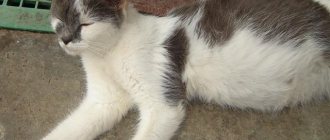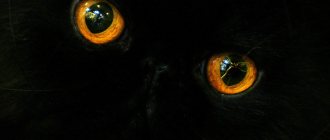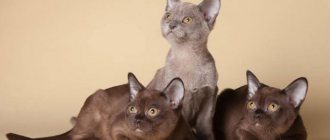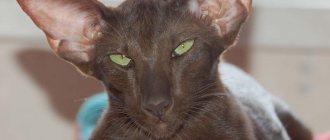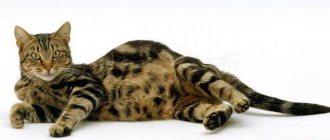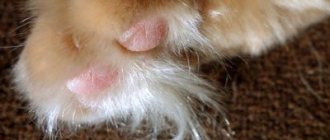It would seem how it is possible to divide people into categories just because one category of people prefers dogs, while the second sees only a cat as a pet. It is difficult to say that cat lovers and dog lovers are two completely opposite groups of people. Moreover, many people love dogs and cats equally. But, nevertheless, cat and dog lovers have some character traits. These differences appear only if a person does not like any other animals except dogs. Well, or cats. It is worth saying that there is no unspoken war between these groups of people. After all, even cats and dogs get along well in the same house. And they even become friends. What can we say about people?
Cat people are smart
The differences between cat lovers and dog lovers have long been debated not only among ordinary people, but also between scientists. Several years ago, researchers from Carroll University conducted a study among students. The young people were asked to place themselves in one of the categories and then take an intelligence test. The study found that cat lovers perform better than dog lovers. But to say that cat people are smarter is quite controversial. The sample was not large and could not influence the result globally. However, such results are more related to the lifestyle of representatives of each group. There are more introverts among cat people. Such people prefer to spend the evening at home with a book rather than going to a noisy party.
Dog lovers listen
Dog people are considered open and cheerful people who cannot be alone for long. Dog lovers have many friends and just good acquaintances. In addition, dog lovers are more sociable, unlike cat lovers. So if you need a friend to vent to, no one does it better than a dog lover. Cat people are less emotional and closed. In addition, due to their character traits, cat people have few friends, but all of them have been proven over the years. In addition to the fact that dog lovers know how to listen, they also know how to obey. During the research, it was found that dog lovers are more flexible and rarely go against the grain.
Cat owners are impartial
Due to their temperamental characteristics, cat people tend to judge any situation, regardless of their likes or dislikes. Like most introverts, cat lovers prefer to analyze the situation first and then make decisions. Dog owners, on the other hand, are more impulsive people, so they often act on emotions and make rash decisions. Impartiality is another quality that distinguishes cat and dog lovers.
What do you call a person who loves cats?
In this article, psychologist Evgenia Dvoretskaya answers the question “What is the name of a person who loves cats?”
The word, of course, is unknown to many and not particularly clear. This is more of a term in the field of psychiatry. This word is translated from Greek as “love for a cat.” Excessive love for cats is called AILUROPHILIA. This word is also often replaced with such synonyms - galeophilia, gathophilia. To put it in a simpler way, cat lovers are sometimes called catophiles. But the word “catophile” does not express excessive feelings; this word expresses a person’s attitude towards cats to a lighter degree; it is rather not love, but a kind of sympathy. People who love cats excessively keep large numbers of them. Most often, such love arises either against the background of the loss of a loved one, or due to the inability to communicate with people (for example, a complex character or misunderstanding on the part of others interferes).
Some people dislike cats, and they cannot explain the reasons. Psychologists say that this is a reason to think seriously and change something in your life.
Most people treat cats very well and positively. And there are those who don’t like them, try to drive them away, the animals make them nervous, irritate them, and it’s difficult for them to even be near them.
And, what is noteworthy, for some reason people do not have a transitional state, that is, indifference to cats: either love or hostility, sometimes even turning into hatred.
Scientists have long tried to solve this mystery. It has long been proven that the purpose of a cat in a person’s life is not at all the extermination of mice and rats.
This animal has a unique bioenergetic system that resonates with the human biofield and is capable of restoring it.
It’s not for nothing that cat owners claim that their pets can relieve headaches, reduce blood pressure, calm them down, normalize sleep, and cure other diseases associated with disorders of the energy aura.
But it turned out that in addition, a cat living in the house is an accurate indicator of how good the situation is and how positive the energy is in the house.
If everything is fine in the family, the cat eats well, sleeps a lot, washes itself often, and is very clean.
In the event of scandals and difficult relationships in the family, the cat begins to get nervous, annoy the culprit of the problem with its screams, stops caring for itself, and will do dirty tricks and spoil personal belongings.
Surely you have noticed more than once that if you offend a child, the cat will definitely come up to him to caress him - in this way she restores peace of mind.
And if a quarrel occurs, the cat will definitely react to it and will always take the side of the one who is right, and not the one who screams more.
Psychologists have discovered the main types of people who cannot tolerate cats.
More than 90% of people who are addicted to alcohol or had alcoholic parents do not like cats.
Hostile relationships with cats in women with a difficult fate, undeservedly offended by men, in people who were subjected to physical and moral violence in childhood.
People who have karmic sins - criminals, rapists - are simply afraid of cats. thieves and deceivers. They feel that the cat knows about these secret sins on an energetic level, so they drive the animal away from them.
Negative emotions towards cats are also experienced by people who consider themselves underestimated; on a subconscious level they understand that this is not in vain, but they consciously want the whole world to admire them. But cats feel exactly what is subconscious, that is, the truth, and this causes rejection in such people.
But cats are needed by a person in order to restore his energy, change his aura and karma. Therefore, those who do not like cats should seriously think about and change their lives to make it harmonious and bright. And then the connection with cats will improve.
Research shows that a person's love for cats or dogs can tell a lot about them.
According to the American Pet Food Association, 62% of American households own pets. Dogs are the most popular pet, with 39% of American households owning them, but cats are a close second to their worst enemy, with at least one in 33% of US households.
Recently, scientists decided to find out whether the choice of a furry friend can really tell something about a person. It turned out that it could.
Research has shown that people tend to gravitate towards the animals with which they grew up and were raised, and factors such as the person’s age and living space are also important.
Parents who have small children are more likely to get a dog that their children can play with and go for walks with. But older people most often choose cats because they are much smaller, and caring for them does not require significant physical effort.
People living in the suburbs are more likely to have large dogs, while apartment dwellers like cats or small dogs.
A pet can tell not only about a person’s character, but also about his political sympathies. After a survey of 2 thousand Americans, it turned out that 33% of dog owners called themselves Republicans, while only 28% of cat owners were Democrats.
After another, larger survey of 200 thousand pet owners, it turned out that the division by political leanings was more even. 50% of dog people were more likely to become conservatives than cat people.
But cat and dog lovers also have something that unites them and makes them similar to each other - all these people consider themselves closer to nature, they are usually optimistic and do not like clothes with images of animals.
The survey also found that cat lovers and dog lovers have equal opportunities to earn a graduate degree, but cat lovers are 17% more likely to complete graduate school.
Here's some more information about the tendencies of cat and dog lovers:
Help for animals:
- 67% of dog lovers help homeless kittens.
- Only 21% of cat lovers help homeless kittens.
Phones:
- Dog lovers are 36% more likely to set a popular song as their ringtone.
- Cat lovers are 11% more likely to copy contacts from their mobile phone into their address book.
Children:
- Dog lovers are 24% more likely to have children.
- Cat lovers are 33% more likely to care for a friend's children than a friend's dog.
Music:
- A dog lover is 18% more likely to name Paul McCartney as his favorite Beatles musician than a cat person.
- Cat people are 25% more likely than dog people to say George Harrison is their favorite Beatle.
- Dog lovers prefer reggae and psychedelic rock.
- Cat people prefer to listen to classic rock and electronic music.
Humor:
- Dog lovers are 30% more likely to like simple humor and vivid impressions.
- Cat lovers are 21% more likely to prefer ironic humor and puns.
Other interesting facts:
Dog lovers are cheerful and friendly
It is not difficult to assume that dog people are much more cheerful and friendly, unlike cat people. Since most cat people are introverts, they prefer to spend evenings at home or with a few close friends. Dog people are extroverts and their energy is directed towards the outside world. It is difficult for dog owners to spend a lot of time at home alone. Dog lovers, like their pets, love to walk a lot, lead an active life and interact with people as much as possible. Therefore, dog lovers have many friends and it is easier for them to make new acquaintances. In this regard, dog lovers are more sociable and flexible in communication. The same cannot be said about cat people.
Ailurophilia
Ailurophilia (gatophilia, galeophilia) is a mental disorder of a person suffering from pathological, uncontrollable attachment and immense love for cats.
Often, painful attachment is observed in elderly and lonely women who have no one else to care for. With this disorder, people can simultaneously keep up to several dozen cats, without being able to provide them with acceptable living conditions. The cat family helps to cope well with loneliness, filling the house with its presence and replacing departed loved ones. In most cases, ailurophilia is observed in individuals who find it difficult to get along with other people. The mass keeping of cats creates a lot of inconvenience for other residents of the house due to the violation of silence and sanitary rules. Ailurophilia can manifest itself not only in older people, but also in young people, both women and men. Lonely or isolated people who have lost their loved ones, or people who are sexually attracted to cats are at risk.
Cat people look for affection, dog people look for friendship
Cat people have very few friends, and to feel not alone, they only need a few (or even one) close friends. Cat lovers are not looking for fleeting acquaintances; it is important for them to have a proven and reliable person nearby. In addition, cat people rarely get along easily with strangers. The same cannot be said about dog lovers. If a dog lover finds himself in an unfamiliar company, he immediately finds like-minded people. Dog lovers value friendship. And the more friends you have, the better. One close friend is not enough for a dog lover.
Sensitive people choose cats
Again we return to the fact that most cat people are introverts. And introverts are known to value deep feelings. Many cat owners are single people. In addition, cat people are more sensitive individuals. Cats always become attached to their owner and rarely show friendliness towards other people. Some studies suggest that cat people are romantic and sensitive people looking for strong love. Dogs, on the contrary, are friendly towards many people. Therefore, if a person starts a relationship, cats cannot get used to a new person in the house for a long time. And some cats cannot accept this at all.
Don't need anyone
In the event that a person does not have any animal at all, this in no way indicates his coldness or harshness. It’s just that in everyday life he has someone to look after and someone to command. He does not get tired of interacting with society and does not want to take responsibility for the pet. And this has absolutely nothing to do with dislike for our smaller brothers. By the way, an exaggerated passion for animals often hides distrust of people or even misanthropy.
She cut her hair and lost weight: Poroshina visited the theater where her mother worked for 40 years
I’ll delight my loved ones with a festive casserole: I’ll make it from potatoes and brie cheese
Priest Pavel Ostrovsky told how to wean a child from stealing money
More dog lovers
As a result of research, it was found that there are much more dog lovers in the world. Unlike cat people. It is also worth noting an interesting fact. There are more extroverts in the world than introverts. It’s true that cat people predominate in cities. It is easier to keep a cat in a small apartment. But in the suburbs, dog lovers predominate. Especially those with large dogs. After all, they need to walk often and the city apartment is too cramped. But we shouldn’t categorically say that there are more dog lovers. Many people have both types of animals. And they love them equally.
Cat owners prefer solitude
Cat owners, unlike dog owners, prefer to spend time at home in a quiet environment. Moreover, as much time as possible. Noisy parties and crowds of people tire cat lovers. A quiet evening at home spent reading a book or watching a movie with your favorite cat is exactly what a real cat lover needs. And getting a dog owner to sit at home for a long time is a whole challenge. In addition, the dog needs to be constantly walked, and the cat is quite happy with a warm house and its favorite window, through which it can look for hours. Or just sleep.
Dog people tend to dominate
Cat people are self-sufficient and independent individuals who are not inclined to show aggression towards other people. In addition, cat owners are less emotional and do not show their feelings so openly. Dog lovers, like their pets, cannot control their emotions and are often impulsive. Due to their character traits, dog lovers often prefer to dominate. And cat people should remain neutral. But, of course, all people are different. And not all dog lovers prefer to dominate other people. And not all cat lovers adhere to neutral positions.
Aquarists
Two types of people like to keep an aquarium at home. The first ones are very active, temperamental and emotional. Admiring the colorful inhabitants of their aquariums helps them calm down their ardor.
The second type is eccentric dreamers. They like fish because they are not like people. They enjoy watching the inhabitants of the underwater kingdom, trying to escape reality.
The expert named the real reason for the death of the unsinkable Titanic
Cake “Waffle”: a delicate-looking and charming-tasting dessert
Rules for layering in winter: how to look stylish and not freeze
Dog lovers are more sociable
Again, it all comes down to the fact that cat people love to spend quiet, peaceful evenings. And dog lovers cannot be kept within four walls. Just like their furry pets. In addition, dogs are easy-going and quickly get used to new people. And they show aggression only if they feel danger. Dog owners are also easy-going and find an approach even to strangers. And they feel quite confident in unfamiliar company. After all, natural communication skills help them out in any situation. Dog owners cannot be alone for long and need constant communication. And cat people get along quite well with the company of their pet.
11 6
Motives and similarities of characters
Why do pets so often resemble their owners? The fact is that we often, to some extent, identify ourselves with one or another representative of the animal kingdom. For example, when bringing a pet home, a person may be guided by one of three motives:
- Similarity. “This dog looks so much like me. I'll take it home."
- Projection of one's own desires. “A free life: if I want, I play with the curtains, if I want, I sleep all day. I wish I could live like this cat.”
- Dream. “I always wanted to have such a cheerful parrot (funny guinea pig, brave dog).
